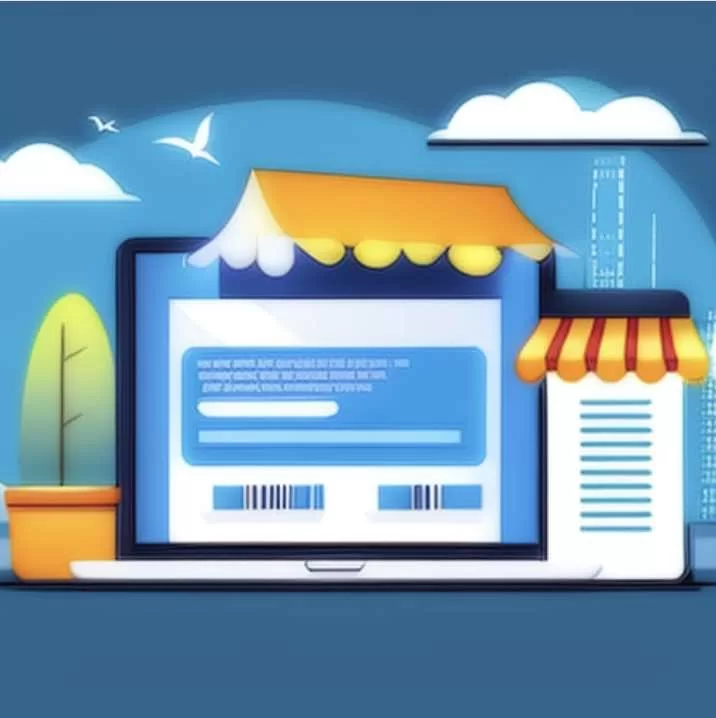How to Find the Perfect Business Idea for You: A Deep Dive for Aspiring Entrepreneurs
The idea of running your own business is an amazing dream that many share. Not everyone has the motivation to do something about it… but if you are ready to jump in the water, you’ll need an idea first.
The question that plagues most aspiring entrepreneurs? How do I find the perfect business idea?
The truth is, there’s no single “perfect” idea waiting to be discovered. But there are effective strategies to unearth an idea with strong potential, one that aligns with your passions, skills, and the market. This blog post will be your deep dive into the world of idea generation, taking you beyond the usual brainstorming methods and into the heart of what truly makes a business idea successful.
Unconventional Idea Inspiration: Thinking Outside the Brainstorming Box
Forget the mind map on a whiteboard – sometimes the most innovative ideas come from unexpected places. Here are a few unconventional approaches to spark inspiration:
- Problem-Spotting in Your Daily Life: We all encounter frustrations in our everyday routines. Look at these as opportunities! Is there a recurring annoyance you could solve with a product or service? Maybe it’s the inefficiency of a household chore, the lack of a user-friendly app for a specific task, or a gap in the service industry. Identify these pain points and brainstorm solutions that could not only make your life easier but also resonate with others facing similar challenges.
- Trendjacking with a Twist: Staying on top of trends is important, but simply copying them isn’t enough to stand out. Look for emerging trends and ask yourself: Is there a unique niche within this trend I can cater to? Can I put my own spin on it by offering a hyper-personalized approach or a more sustainable solution? For example, the subscription box trend is huge, but there might be room for a subscription box focused specifically on sustainable local goods or handcrafted pet supplies.
- Reimagining Existing Businesses: Innovation doesn’t have to be about entirely new concepts. Can you improve on an existing business model? Is there a way to offer a more tech-driven, personalized, or environmentally friendly alternative? Perhaps a local laundry service could provide on-demand pick-up and delivery or a traditional bookstore could curate personalized book recommendations and host online author events.
By looking at the world with an eye for improvement and a touch of creativity, you might discover a brilliant idea waiting to be brought to life.
Strengths & Passions Alignment: The Fuel for Your Entrepreneurial Journey
Many successful businesses are built around the owner’s strengths and passions. When you combine what you’re good at with what excites you, you create a powerful foundation for long-term success. Here’s how to explore this alignment:
- Skills Audit with a Business Lens: Take stock of your skills and experience. What are you naturally good at? What did you enjoy most in your past jobs or volunteer work? Can you translate those skills into a valuable business offering? For instance, if you have a knack for graphic design and love social media, you could offer social media management services to local businesses.
- Passion Project Pivot: Do you have a hobby or a cause you’re deeply passionate about? Could you turn it into a business? Perhaps you’re an expert knitter and love creating unique scarves. You could launch an online store selling your handmade crafts or offer knitting workshops. The key is to identify your passion and explore ways to monetize your expertise or create a related product or service.
- The Ikigai Intersection: Explore the Japanese concept of Ikigai – the sweet spot where your passion, mission, vocation, and profession converge. When your business idea aligns with your Ikigai, it becomes more than just a job; it becomes a fulfilling pursuit that brings you joy and purpose.
By delving into your strengths and passions, you’ll not only discover ideas you’re genuinely excited about, but you’ll also be setting yourself up for a more meaningful and sustainable entrepreneurial journey.
The Power of Using a Notebook for Business Ideas
When you’re starting a business, keeping a notebook for your ideas is a game-changer. If yoiu want to generate a lot of business ideas, here’s the secret sauce – trust me this works wonderfully:
- Get a blank notebook or start a document.
- Jot down one new business idea every day, no matter how small or crazy it may seem. You must do it every day.
- After a week or two, up it to two ideas per day.
- This daily practice trains your brain to think creatively and spot opportunities all around you. You won’t be able to stop yourself and after about 3 weeks you’ll become a business idea generating machine.
As you fill your notebook with ideas over a week or so, you’ll notice a shift in how you see the world. Suddenly, business opportunities will pop up everywhere, and your mind will be buzzing with new possibilities.
By consistently writing down ideas, you not only build a treasure trove of potential ventures but also sharpen your problem-solving skills and boost your creativity.
So, grab that notebook and get busy- it’s not just about brainstorming; it’s about cultivating a mindset that sees opportunities where others might not.
Validating Your Million Dollar Idea: From Dream to Reality
Having a great idea is just the first step. Before you quit your day job and invest everything into your venture, it’s crucial to validate your idea and assess its market potential. Here are some ways to do that:
- Market Research Made Simple: Market research doesn’t have to be expensive or time-consuming. Utilize free online tools like Google Trends to understand search volume for your product or service. Reach out to your network and conduct informal surveys to gauge initial interest. Social media polls and online communities can also be valuable resources for gathering feedback.
- The Minimum Viable Product (MVP): There’s no need to build a fully-fledged product before testing the waters with potential customers. Develop a Minimum Viable Product (MVP) – a basic version of your idea that showcases its core features and benefits. This MVP could be a simple website landing page explaining your concept, a prototype app with limited functionality, or even a physical sample of your product. The goal is to get early feedback and see if there’s a market fit before investing heavily in development.
- Pre-selling and Crowdfunding: Pre-selling your product or service is a powerful validation tool. Offer potential customers a discount or early access in exchange for a pre-order. This not only helps gauge interest but also generates some initial funding. Crowdfunding platforms like Kickstarter or Indiegogo allow you to raise capital from a large pool of potential customers, further validating your idea while securing the resources you need to bring it to life.
By following these steps, you can move your business idea from dream to reality with more confidence, knowing there’s a market waiting for your offering.
Beyond the Money: The Importance of Business Fit
While financial success is a natural aspiration, there’s more to consider when choosing a business idea. Here are some factors that go beyond just the potential profit:
- Lifestyle Business Design: How much time and flexibility do you desire in your life? Do you crave the fast-paced, high-growth world of a startup, or are you looking for a more balanced, sustainable business model? There are business structures to suit all lifestyles. Explore options like freelancing, remote work, or building a brick-and-mortar store with specific operating hours. Structure your business model to achieve the work-life balance you desire.
- Impact Entrepreneurship: Do you want your business to create a positive social or environmental impact? The world of impact entrepreneurship is booming, offering opportunities to address social issues like poverty or climate change while building a profitable business. Explore areas like sustainable fashion, fair-trade products, or educational technology that empowers underserved communities.
- Building a Business You Believe In: Passion and purpose are key ingredients for long-term success. Choose a business idea you’re genuinely excited about, something that aligns with your values and beliefs. When you believe in your mission, you’ll be more motivated to overcome challenges and persevere through tough times.
Finding a business idea that fits not just with the market but also with your lifestyle and personal aspirations is crucial for creating a sustainable and fulfilling entrepreneurial journey.
Resources for Aspiring Entrepreneurs: Equipping Yourself for Success
The path to entrepreneurship is paved with learning and continuous improvement. Here are some resources to equip you on your journey:
- Free and Paid Business Courses: There are numerous online and offline resources offering valuable education on business fundamentals. Platforms like Coursera, Udemy, and Skillshare offer affordable online courses on topics like marketing, finance, and business management. Consider enrolling in local workshops or certificate programs offered by community colleges or business development centers.
- Mentorship Programs and Incubators: Connect with experienced entrepreneurs who can guide you through the challenges and opportunities of starting and running a business. Mentorship programs pair you with an industry veteran who can offer personalized advice and support. Business incubators provide office space, resources, and mentorship specifically for early-stage startups.
- Business Networking Events: Network with like-minded individuals and potential partners at industry events, conferences, and workshops. These events offer opportunities to learn from successful entrepreneurs, exchange ideas, and build valuable connections within your industry.
By actively seeking out resources and building a strong support network, you’ll be well-equipped to navigate the exciting yet challenging world of entrepreneurship.
The Myth of the Perfect Idea: Embrace Iteration and Take Action
There’s a misconception that there’s a single “perfect” business idea waiting to be discovered. The reality is, most successful businesses evolve and adapt over time. Here’s why you shouldn’t wait for perfection:
- The Power of Iteration: Be prepared to adapt and refine your idea based on market feedback. Your MVP will generate valuable insights from potential customers. Use this feedback to iterate on your product or service, constantly improving it to better meet market needs.
- Taking Action: Imperfect is Better Than Stalled: Don’t wait for the “perfect” moment to launch your business. Start with the best idea you have now, take action, and be prepared to adapt as you go. The sooner you get your product or service in front of potential customers, the sooner you can gather feedback and refine your offering.




